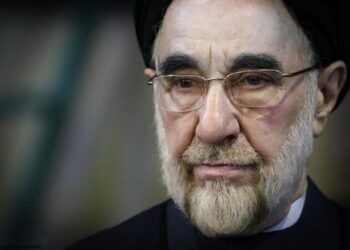The criticism was mild, but surprising coming from the man most assume approved the raid in the first place.
Khamenehi met with about 1,000 students earlier this month and the transcript of his talk and his responses to student questions was recently posted on his website.
The transcript shows he was asked about his reaction to the vandalizing of the British embassy. Khamenehi said, “The sentiments of the youth were right, but their going there was not right.”
The police stayed away from the embassy for hours as the students poured over the walls, ransacked the buildings, destroyed equipment, started some fires and walked off with souvenirs. Eventually, the police moved in and herded the students out of the compound.
The police are under the command of the Supreme Leader, not the government of President Ahmadi-nejad, and it is widely assumed the police would never have allowed an attack on an embassy without specific orders from Khamenehi.
In the decades since the seizure of the US embassy, the police have been firm about protecting embassies and have been subject to heavy criticism when they have not responded to attacks speedily. It appears they have standing orders to protect embassies.
After last November’s attack, however, there was no criticism of the police from within the establishment, feeding the assumption that Khamenehi’s had personally approved the attack.
The Supreme Leader’s new criticism, however, has not gotten much coverage inside Iran. That is not odd; many of Khamenehi’s newsworthy remarks have been censored over the years. Khamenehi may have wanted his comments critical of the raid on the record so Iranian diplomats could cite them to foreign governments, but at the same time not have wished the criticism to get widespread coverage inside Iran.
There have been numerous reports since the raid that the Iranian authorities were startled by the furious British response and its decision to withdraw all its diplomats, boot out of Britain all Iranian diplomats and reduce relations to lowest level possible.
The Islamic Republic has not admitted all that to its public. It has said that Iran expelled the British diplomats.
In response to other questions from the students, Khamenehi insisted that the ongoing privatization of state-owned forms “will certainly not lead to detested capitalism, and capitalism will not take center stage in the country’s decision-making.” Being an equal opportunity critic, Khamenehi quickly added, “We must not allow the socialist perspective to dominate economic thinking.”
Queried about the crackdowns on student groups and bloggers, Khamenehi put on his man-of-moderation turban and said, “I am of the opinion that there should not be a harsh reaction to the harsh words of a young student.”
Over the years, Khamenehi has pardoned a number of students who have been jailed for harsh criticism of the regime and of him personally. He traditionally acts after they have spent many months cooling their heels in a cell, however.














